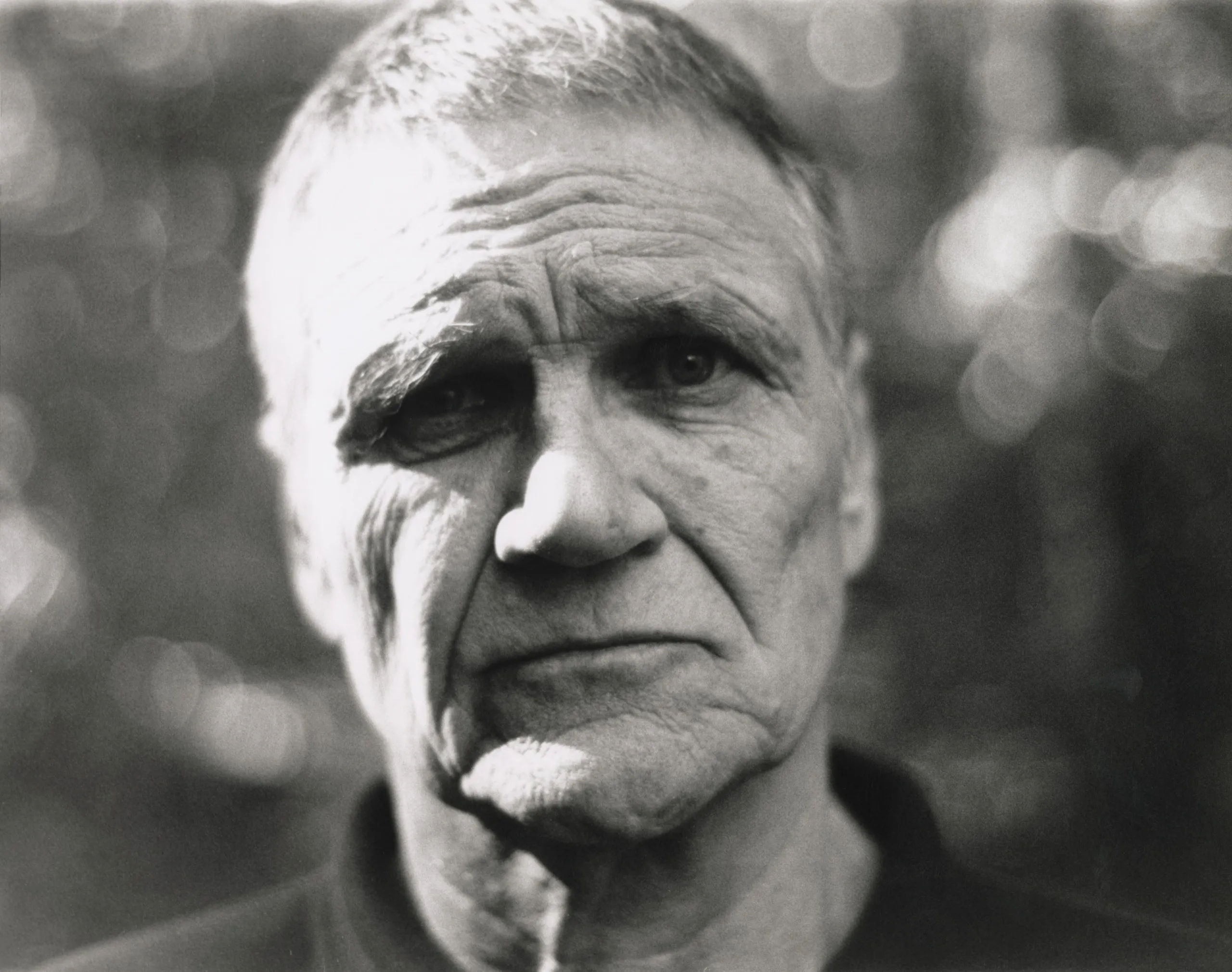
Novelist Harry Crews has died from complications from neuropathy. Crews, who died at his home in Gainesville, Florida, was 76. “He had been very ill,” his ex-wife, Sally Crews, tells the Associated Press in this report. “In a way it was kind of a blessing. He was in a lot of pain.”
The AP report describes Crews as follows: “A wild man and drunken sage in the tradition of Charles Bukowski and Hunter Thompson, he wrote bloodied, freakish stories drawn directly from his own experiences, including boxing and karate. Crews sported a tattoo with a line from an E.E. Cummings poem, ‘How do you like your blue-eyed boy Mister Death,’ on his right bicep under the tattoo of a skull.” According to a brief earlier write-up in a New York Times obituary: “Though his books captivated many reviewers (they bewildered others and repelled still others), they attracted a cadre of readers so fiercely devoted that the phrase “cult following” seems inadequate to describe their level of ardor.”
Crews was the son of sharecroppers in Bacon County, Georgia. Growing up was rough, and when his father died when Crews was two, the boy was marked for life. As the AP report details,
His childhood alone tested the imagination. His mother married his father’s brother, a violent drunk. Crews suffered from infantile paralysis and once fell into a vat of boiling water, confining him to his bed for months. Still, he managed to become the first member of his family to graduate from high school, after which he joined the Marine Corps. In the book “Getting Naked with Harry Crews,” he explained to interviewer Hank Nuwer that his military service was crucial.
“If I hadn’t gone in the Marine Corps, I wouldn’t be a professor in the university. I’d be in the state prison because I was a bad actor and a bad boy.”
After a stint in the Marines, Crews began writing, and eventually his publications earned him a spot on the faculty of the University of Florida, where he taught from 1968 through 1997. As recalled by his students, he was mesmerizing on the topic of writing.
He told one interviewer what he told his students; “If you’re gonna write, for God in heaven’s sake, try to get naked. Try to write the truth. Try to get underneath all the sham, all the excuses, all the lies that you’ve been told.”
